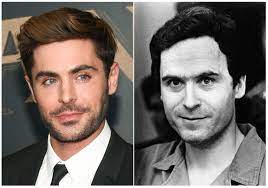Glorification of Serial Killers
Ted Bundy, Charles Manson, Jeffrey Dahmer; these have become household names. With the rise of true crime podcasts and popular shows like Making a Murderer and Criminal Minds there has been a rise in the interest for murder shows and pop culture has capitalized on this.
After the release of “Conversations with a Killer: The Ted Bundy Tapes” and Extremely Wicked, Shockingly Evil and Vile earlier this year, there was this romanticization of serial killers taking root. Extremely Wicked, Shockingly Evil and Vile is about Ted Bundy’s crimes from the perspective of his girlfriend who refused to believe he was capable of such things for years. The movie stars heartthrob Zac Efron who plays the infamous serial killer, Ted Bundy. By having such an attractive actor play a man who raped and murdered at least 30 women, it emphasizes this narrative that Ted Bundy was an attractive, charming man. This also created this romanticization of serial killers. On Twitter, users were comparing the attractiveness of Ted Bundy and Jeffrey Dahmer. There are even fan accounts for well-known serial killers. Women become obsessed with and even attracted to serial killers to the point of professing their love in the form of letters or marriage proposals (Ted Bundy received multiple marriage proposals when he was in prison).
There are psychological theories as to why people become obsessed and attracted to
serial killers. Psychologists believe this fascination and attraction comes from a desire to know
why they committed the murders and what led them to that place. However, this glorification and creating a legacy for them long after their deaths is harmful. This makes the surviving victims and the victims’ families have to deal with the attack over and over even though the perpetrator is long dead and has been punished for the crimes. Justice was served for them, but having to relive it is not justice. Not only is talking about these notorious serial killers hurtful for the victims, but it is also exactly what they want. Many serial killers, like mass shooters, crave the fame and attention, they want to be infamous. Even if they die they know people will still be talking about them.
That in and of itself is the major problem with glorifying and obsessing over serial killers.
By creating multiple movies and TV shows and books about serial killers, we are saying we are a society that likes portraying serial killers in our pop culture. Even though the movies and TV shows and books detail the gruesome crimes and make it clear that these things are wrong, they are still talking about it–all publicity is good publicity. This is essentially showing potential serial killers and mass shooters that they too can become infamous and get movies and TV shows and books made about them.


Comments
Post a Comment